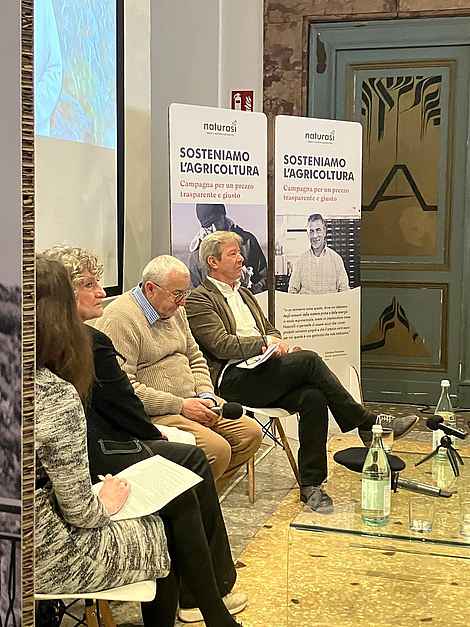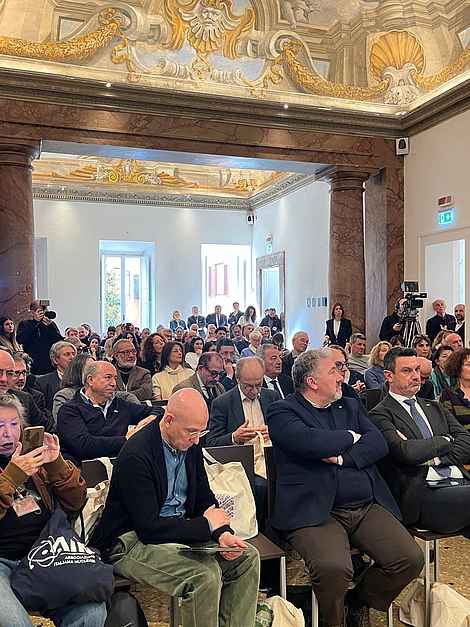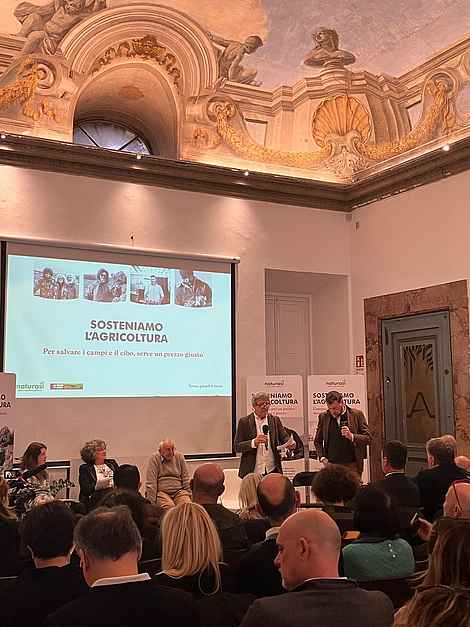For selected products, the price breakdown will show not only the final retail price but also the share received by farmers and processors. In products such as tomato passata, bread, fennel, oranges, and kiwis, the producer's share can reach up to 50% of the retail price.
Leading industry representatives met in Rome today to discuss how fair food prices – particularly in the organic sector – can be achieved. Participants included:
Fabio Brescacin, President and Founder of NaturaSì
Maria Grazia Mammuccini, President of FederBio
Silvia Schmidt, Policy Manager at IFOAM Organics Europe
Ueli Hurter, Co-Leader of the Section for Agriculture at the Goetheanum in Dornach, Switzerland
Representatives from farmers' associations, cooperatives, and scientific institutions were also present to promote open dialogue and develop a system that fairly compensates farmers and educates consumers.
Fabio Brescacin emphasized: “Agriculture is in crisis: Over the past 15 years, more than five million farms have disappeared in Europe. To make farming attractive again, farmers must earn a livelihood that secures their future.”
A practical example of fairer pricing: NaturaSì pays 45 cents per kilo for organic durum wheat, while the conventional market offers only 30 cents. Of the €3.98 retail price for one kilo of fennel, €1.80 goes directly to the farmers; the rest covers logistics, transport, and retail costs.
Maria Grazia Mammuccini pointed out that the organic sector is leading the way: “Fair pricing is not just an economic issue – it's also an ethical and social one. We need structural measures to ensure farmers are paid appropriately.”
At the European level, this topic is gaining importance as well. Silvia Schmidt noted that the European Commission, through the Agricultural and Food Chain Committee (AFCO), has recognized the need for pricing transparency.
Ueli Hurter, Co-Leader of the Section for Agriculture at the Goetheanum, emphasized: “Agriculture is a unique sector because its added value comes directly from working with nature. The higher direct costs in organic farming are balanced by the environmental protection it provides. Unlike conventional farming, there are no hidden follow-up costs caused by the exploitation of natural resources.”
Farmers like Dora Brio from Matera, who are part of the NaturaSì network, also support the campaign: “A fair price allows us to produce high-quality food and maintain fertile soils for future generations.”
With this initiative, NaturaSì is setting a milestone for greater fairness and sustainability in the food sector. “We’re not claiming that our prices are already fair,” said Brescacin. “But we want to make the pricing structure transparent. Every purchase is a conscious decision for a more sustainable food system.”
This article is based on today’s press release from NaturaSì.


